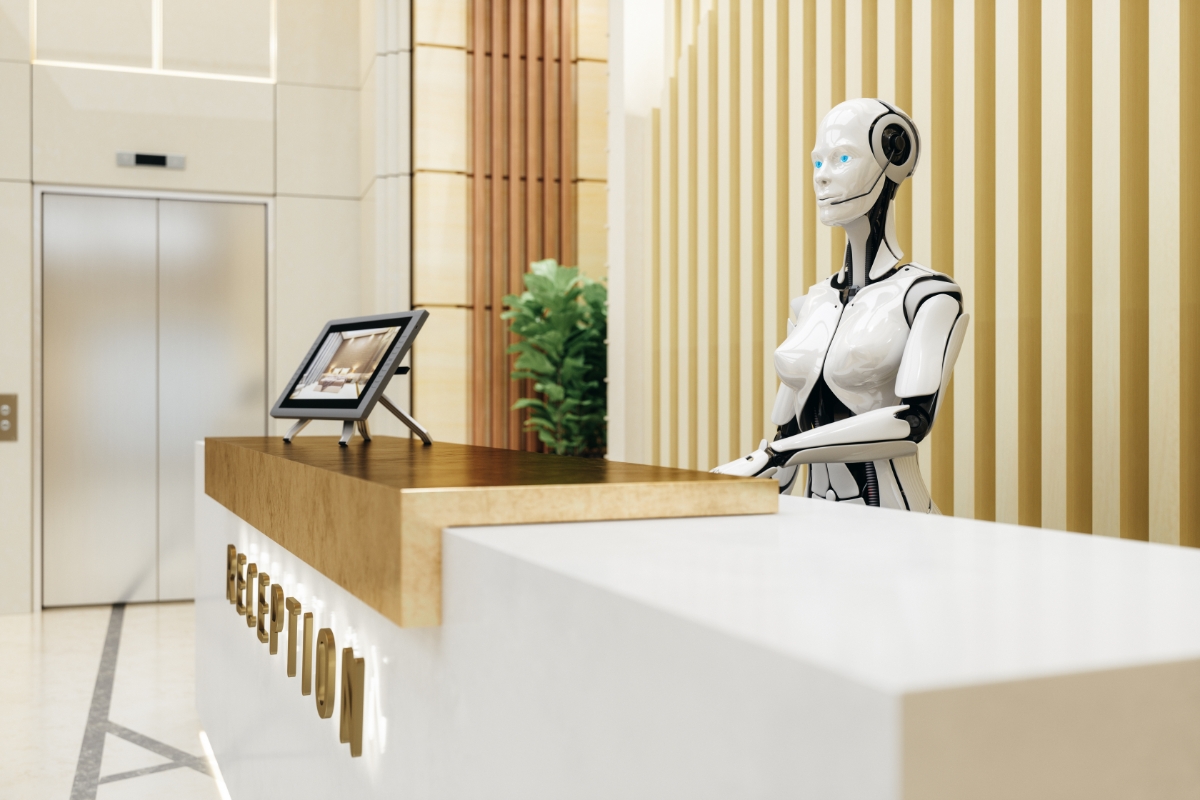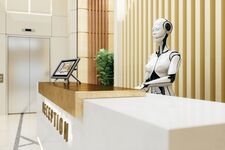Quo vadis, robot technology in hospitality?
Artificial intelligence (AI) and robot technology have long been used in a variety of areas within the hospitality industry. A hospitality business' motives for using robots are obvious: They appear ultra-modern, can improve service to a certain extent and, consequently, can also strengthen the company's reputation and brand image. As part of the service industry, hospitality mainly uses service robots that are deployed in departments like housekeeping, room service or meetings and events, in the form of drones or minibar robots, for example. But what is the ratio between benefits, costs and risks? And how are robots actually perceived by guests?
A team of researchers from the University of Nevada and Fort Hays State University got to the bottom of these and other questions in its review “Artificial Intelligence and Robotics Technology in the Hospitality Industry – Current Applications and Future Trends”.
The scientists reached the conclusion that the use of service robots will result in long-lasting changes in the nature of service provision in the future and, already today, affects both the guest experience and the relationship between the guest and the service provider. To ensure a positive impact on both, the technology and design must be continuously optimised.
For example, previous research into the impact of the appearance of service robots on hotel guests has delivered some interesting indicators regarding the design of the machines: Robots that look very human are perceived by guests as being slightly creepy. Yet they are significantly more likely to tolerate errors by such humanoid robots than robots that look very technical. Another study found that a short-haired, male-looking robot was perceived as more action-oriented and purposeful ('agentic') in the meaning of socio-pyschological stereotype research, while a long-haired, female-looking robot was perceived as more caring and relationship-oriented ('communal').
For most hospitality organisations, however, the financial effect of the use of AI and robots is even more important than the design. Even though it is questionable whether companies can actually record an appreciable monetary impact, and research into this is still inadequate, the researchers are not ruling out a positive financial effect. On the one hand, the costs for the procurement of such technologies and hardware must be compared against the actual HR costs saved and/or the productivity increases achieved. On the other hand, softer factors, such as the company image, must also be included in the considerations regarding whether and to what extent AI and robot technology should be used in business operations. In addition, robotics experts assume that the procurement costs will fall sharply at the same time as the manufacturing scale increases.
Now, as before, however, this is contrasted against the biggest risk when it comes to using robots in the hospitality industry: Cyber security. Most robots require an internet connection, resulting in a huge scope for attacks by hackers, who can decode and recode the robots. And so the question is: Quo vadis, robotics in hospitality?
With regard to the future development of the use of AI and robots in the hospitality industry, the present review has identified six key influencing factors:
- The type and scope of state support
- The market development potential
- The further development of the robot industry
- The general technology development potential
- The ability to procure the required capital accordingly, and
- The capacity for talent development
Conclusion: One thing is for sure: The more robots walk or go around on wheels, the more digitisation is taking hold, the more important real empathy becomes. The personal contact with our guests is central to the experience. In the best case, digitisation will free staff members and employees to deal with their customers in a direct and personal way. It is not important to be for or against digitisation here, it is about finding a new balance in this relationship in the hospitality sector, and in the center is the satisfied guest.
back to overview

